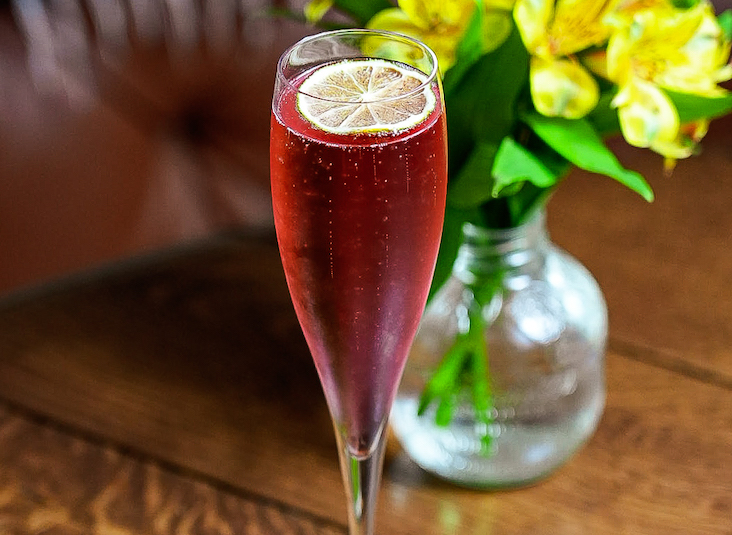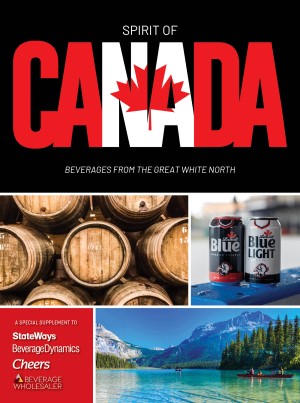Near Washington, D.C’s Convention Center, tucked behind a closed door, adjacent to older brother Tom’s more raucous bar The Passenger, Derek Brown’s intimate Columbia Room is a dreamlike, Zen-like ode to the expertly crafted drink. Metallic, tag-adorned bottles and jars of herbs, roots, tinctures and bitters line backbar shelves as if in a nineteenth century apothecary—undeniably effective cure alls for the common cocktail. The bar’s recessed lighting, neutral tones and green touches evoke the subdued and inviting feel of a day spa, one where the well-made Martini can deftly stand in for a deep tissue massage.
But despite an atmosphere that on paper sounds esoterically exclusive, in reality hospitality at the Columbia Room is gracious and decidedly inclusive. Approachability, rather than elitism, is the goal here. Travels to Japan sparked Brown’s interest in incorporating the concept of omakase into the buzz-worthy bar he launched last year. Translated to “it’s up to you” and akin to the exchange between a sushi chef and a diner, omakase behind the stick allows the mixologist creativity carte blanche, while giving guests input about what goes into the shaker. “I take notes from small Japanese bars in Tokyo but let people in on the process of making cocktails,” he explains.
A visit to the Columbia Room, recently named by Bon Appétit magazine as one of the top ten new cocktail bars in the United States, involves a bit more than strolling in and bellying up to the bar. To assure a civilized experience, advanced reservations are required to secure one of ten coveted seats and guests are encouraged to “go all out” and dress up for the occasion. A $64 tasting menu includes three drinks and a small plate from the kitchen. An à la carte option is also available. Patrons opting for the former start with an opening drink that could range from a Champagne cocktail to a warm mug of mulled wine, depending on the season.
A Focus on Pairings and Interactivity
Brown has a fervent interest in pairing cocktails with food, and the prix fixe menu’s second course lets him flex his bar-chef muscles. He muses that “lines that have been blurred between cooking and bartending are [now] redrawn as this: bartending is a branch of the food arts.” Inventive fork-and-bottle combinations have included a Pomegranate Golden Gin Fizz with Old Tom Gin paired with Frisée Salad with Pomegranate Vinaigrette, Lardons and a Poached Quail Egg; and the Calvados- and Dubonnet-based Arnage with celery and aromatic bitters, served alongside Chicken and Apple Sausage with a Cabernet Reduction, Celery Root Purée and Espelette Pepper. An upcoming libation will feature Oude (old) Genever, Luxardo Maraschino Liqueur and the Columbia Room’s Forbidden Fruit and Lemon Bitters, partnered with Steamed Local Clams in Sake and Ginger.
During an evening at the Columbia Room, Brown enthusiastically answers questions and offers up tips and anecdotes for spirits newbies and curious cocktailians alike. This accessibility is most apparent in the final tasting course, where Brown queries guests to glean information about flavor and base spirit preferences before creating a customized drink for each one. “We’ve noticed lots of requests for whiskey drinks,” he notes, including classic and modern riffs on the Manhattan, Sazerac and Old Fashioned. Beverages with unusual bitter elements also frequently cross the bar. “We’ve made some fig bitters in house that have been aging in barrel for about two months now and are delicious in an Old Fashioned.”
Hour-long classes held on Saturday afternoon, starting at $65 per person, touch on topics ranging from attractive yet practical garnishes and Pisco, to the secret behind that perfect Martini (the Columbia Room was lauded recently by GQ magazine as offering the best Martini in America). “Our classes are almost like elective courses for mixology—focusing on either techniques or flavors,” explain Brown. Attendees run the gamut from fellow “cocktail nerds,” as Brown describes himself to veritable amateurs seeking to become confident home bartenders.
Any venue, regardless of size, theme, location or quantity of drinks served per evening, can benefit from a dash or two of Brown’s philosophy. “Be open to talking to people, answering questions and having conversation,” he recommends. “Making a great drink is important, but your goal is to make people happy.”




